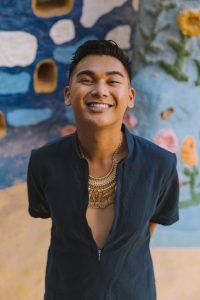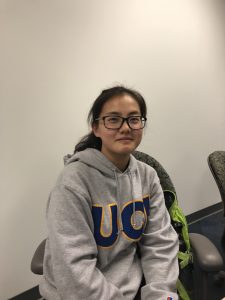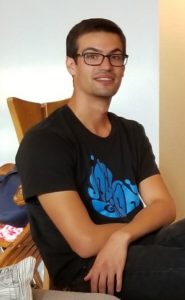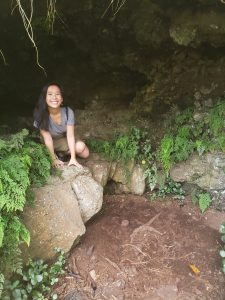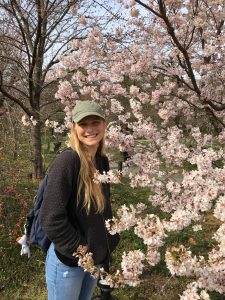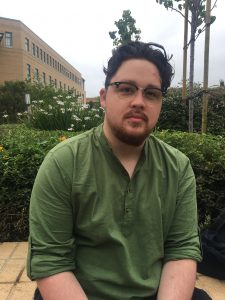2020
The following UTeach classes will be taught during Spring 2020, under the leadership of Chase Robinson. Please click on one of the links below to be redirected to the course description of the course, including a biography of the instructor and class listing.
U.S. Feminism: First to Fourth Wave
Mariachi
History of Progressive Rock
The Veil and Iran
What is a Sign?
Queer Pilipinx-American Studies
Octopus
Shakespeare’s Sonnets
Spoken Word Poetry
I Think Therefore I Am… Anxious
The Evolution of the Romance Novel
Normative and Non-Normative Psychology Through Film
U.S. Feminism: First to Fourth Wave
Amanda Bishop
Majors: English, Psychological Sciences, & Education Sciences
Hi everyone! My name is Amanda Bishop and I am a fourth year majoring in English, Psychological Sciences, and Education Sciences. I am extremely excited to teach and collaborate with you all in this course on the history and theories of feminism. Growing up, I always felt like I had an understanding of feminism as a powerful social movement built to stretch our conceptions of gender conventions and in order to integrate the feminine as an equal source of power and agency alongside the masculine. As I have continued my educational journey at UCI, I started to unravel the history of feminism in order to answer my personal question on what it really means to be a feminist. Over the course of the past few decades, the feminist movement has evolved to fit the culture it surrounds. Thus, I found myself studying feminist theory not only to expand my knowledge on the subject, but to also understand our contemporary moment whether that be in the political, social, or revolutionary sense. This course is an exciting opportunity for me to continue to learn about feminism and to also convene with other students my age who may act as representatives for the fourth wave of feminism. As I am pursuing graduate school in English, feminist philosophy and gender studies will be central to my continued research and future career path. I have a few jobs at the moment, one of which is as a Peer Tutor with the UCI Writing Center. Outside of school and work, I absolutely love to read, write, and spend time with my family and friends.
Course Description: This course is designed to create an open, intellectual atmosphere where students can discuss the history and impact of feminism from the first to the fourth wave. We will discuss the transformation of the feminist movement over the past few centuries from battling for suffrage to more complex discussions on reproductive rights and women in the workforce. Through excerpted readings from critics and key figures alike, this course will survey feminism chronologically and will incorporate discussions of theories, successes, and criticisms of the movement. My ultimate objective for the course is for students to leave with a thorough understanding of the main tenets of each wave and to be able to discuss what it means to identify as a “feminist” today. There are no prerequisites for this course. All backgrounds are welcomed and encouraged to enroll in the course! If you would like to preview the syllabus, readings, or have any questions about the course itself, feel free to email me at: abishop1@uci.edu. I look forward to meeting you all!
Enrollment Information:
Time: Tu 2-2:50pm
Place: DBH 1422
Course Code: 87631
Faculty Mentor: Dr. Andrea Henderson
Back to Top
Mariachi
Luis Zambrano
Majors: Viola Performance, Psychology
Biography:
Hello, my name is Luis Zambrano. I am a 5th year double major in Viola Performance and Psychology. I am a guest Mariachi instructor at Santa Ana High School through The Creative Connections Program at UCI. Outside of UCI, I direct my own mariachi ensemble, Mariachi Nuevo Amanecer de Luis Zambrano, a position that I’ve had since the age of 12. Seeking to improve as a mariachi director, I took lessons and studied theory at The Colburn School of Performing Arts at the age of 15. This line of thinking brought me to UCI, where I continue to alternate between classical music during the week and mariachi music during the weekends.
Doing both often led to comments, from both sides, along the lines of “we don’t do that here.” “That’s how you phrase that [type of music], but over here, we do it like this.” I experienced a musical binary, which itself was a microcosm of the cultural binary that I had been experiencing from the moment I began studying at the Colburn School. At some point, I began to ask myself: What is Mariachi music? What is Mariachi? What does it mean to me? Does it put the Mexican in my Mexican-American?
Years of further questioning, more musical development (in both spheres), and an added second-major later and here I am presenting some answers through the form of this UTeach course.
Course Description: Mariachi is a concept. It is a genre and subgenre, style, culture, music. Mariachi is synonymous with Mexico and its culture. Given the political climate towards Latinx folk, it is important to understand the history and significance of Mariachi and all aspects of it. Furthermore, the story of Mariachi and its importance is crucial in understanding Mexico both
pre- and post-revolution. This is not unique to Mexico but in studying the relationship between Mariachi and Mexico, students will understand the role that art has in national and personal identification.
Enrollment Information:
Time: W 10:00-10:50am
Place: DBH 1422
Course Code: 87640
Faculty Mentor: Dr. Nicole Grimes
Back to Top
History of Progressive Rock
Alen Ashikian
Major: Business Administration
Biography:
 Hello! My name is Alen and I’m a second year Business Administration major, with an emphasis in Marketing. As you can see, my area of study has absolutely nothing to do with my course; I’m just really passionate about progressive rock music! I’ve been collecting vinyl records since high school, and since then my room has steadily been shrinking as Pink Floyd & Yes albums overflow off the shelves and onto the floor. The introductory music courses I’ve taken here at UCI went into classical, jazz, and rock n roll. However, I was surprised that they didn’t really touch upon progressive rock, which combines all three genres. It seemed like the perfect kind of music to put under a microscope. So last spring, I Googled something along the lines of “teach your own class UC Irvine” and… well here you are, reading my bio and course description! That being said, I’m really excited to share my enthusiasm for this topic with you this spring!
Hello! My name is Alen and I’m a second year Business Administration major, with an emphasis in Marketing. As you can see, my area of study has absolutely nothing to do with my course; I’m just really passionate about progressive rock music! I’ve been collecting vinyl records since high school, and since then my room has steadily been shrinking as Pink Floyd & Yes albums overflow off the shelves and onto the floor. The introductory music courses I’ve taken here at UCI went into classical, jazz, and rock n roll. However, I was surprised that they didn’t really touch upon progressive rock, which combines all three genres. It seemed like the perfect kind of music to put under a microscope. So last spring, I Googled something along the lines of “teach your own class UC Irvine” and… well here you are, reading my bio and course description! That being said, I’m really excited to share my enthusiasm for this topic with you this spring!
Course Description: “I always say that it’s about breaking the rules. But the secret of breaking the rules in a way that works is understanding what the rules are in the first place.” – Rick Wakeman, keyboardist
In this course we will learn about Progressive Rock, a style of music that was popular especially in the 1970’s. It is characterized by its classical & jazz influences, heavy use of keyboard instruments, and lengthy compositions. We will examine the genre’s history and development from the 1960’s through the 1980’s, with a focus on its relationship with technology, as well as its shifting level of popularity with audiences and the music industry.
By the end of the course, you should have a general understanding of what Progressive Rock is, how and why it changed over time, and understand how it has had a lasting influence on the popular music of today.
Enrollment Information:
Time: W 3:00-4:20pm
Place: DBH 1422
Course Code: 87632
Faculty Mentor: Dr. Amy Bauer
Back to Top
The Veil and Iran
Neekta Eftekharzadeh
Majors: English, Criminology
Hi everyone! My name is Neekta, and I’m a 4th year double major in English and Criminology, Law & Society. A few of my favorite things outside academics include Halloween, makeup, music, and eating! On the more school-oriented side of things, I aspire to go to law school and I’ve served a year as the Executive Vice President of UCI’s Phi Alpha Delta Pre-Law Fraternity. I’ve also always had an immense interest in feminist topics and I think it’s incredibly important to be able to talk about such complicated issues with other students. Thus, these factors, coupled with my Iranian heritage, have inspired me to create my course, “The Veil and Iran.”
Course Description: Westernized notions of Iran and the Middle East have been built on the foundation of Orientalism. Needless to say, this means that many of our conceptions of Middle Eastern culture and Islam are colored by racist and imperialistic motives. For this reason, my course, “The Veil and Iran,” aims to deconstruct those preconceived ideas about Iranian society, specifically by looking at how the Iranian woman’s body has been politicized through the practice of veiling. My goal in creating this course is to look at different gender and class perspectives on the veil in 20th century Iran, thus exposing its vast and numerous complexities. A large part of this process also includes giving a voice to women who weren’t granted such privileges by the governments who created policies around veiling.
Enrollment Information:
Time: Tu 3:00-3:20pm
Place: DBH 1420
Course Code: 87638
Faculty Mentor: Dr. Nasrin Rahimieh
Back to Top
What is a Sign?
Joseph Riccio
Major: Comparative Literature
Biography:
My name is Joe and I’m a fourth year Comparative Literature major with a minor in Anthropology. I’ve been fascinated with language for as long as I’ve been speaking and reading, and the more I read and talk with others, the further down the linguistic rabbit hole I go. I became interested in the “study of signs” formally a few years ago, but I’ve also been drawn to the complexity of meaning formations and how we respond both inside and outside academia. As I learned more about the nature of signs, I decided that it would be incredibly fun to design a class around the idea of a sign and what it means to signify and be signified. I’m hoping that this course will serve as an open conversation around deciphering and understanding the world in which we live.
Course Description: We live in a society. Society has signs. But there just may be more to it. How do we understand multiple meanings of one word? How does an image create a web of meaning in our minds? Do others have that same web? How can taking the time to read and analyze a text reveal to us the flexibility and instability of meaning? What’s the benefit of knowing all this junk?? How can we decode forms of media by thinking through the logic of signification? In this course, we will start with dominant semiotic discourse (we’ll read some old guys’ theories) and read interventions made by contemporary theorists. Together as a class, we will practice “close-reading” and look for ways in which meaning is conveyed in literature, advertisements, political rhetoric, and reality TV. By the end of the course, we will be able to better understand how we operate in the linguistic world as subjects of semiotics.
Enrollment Information:
Time: Th 5:00-5:50pm
Place: RH 192
Course Code: 87636
Faculty Mentor: Dr. Elizabeth Allen
Back to Top
Queer Pilipinx-American Studies
Jairus Pacelo
Majors: Drama, Gender & Sexuality Studies
Kamusta ka, kapatid? (“How are you, friend?”) My name is Jairus Pacelo, I am a 4th year double major in Drama and Gender & Sexuality Studies, and I am very excited to be joining U-Teach this year! A little over a year ago, UCI’s Department of Asian-American Studies said goodbye to the only professor who offered an undergrad course about the Filipino-American experience. After learning about U-Teach and its radical potential to allow students to learn to become facilitators and agents of change, I proposed a course that would pay homage to a curriculum that centers the voices, histories, and experiences of Filipino-/Americans. Through my experiences as an actor, director, artist, and scholar, I’ve seen and witnessed a lack of visibility of Filipino-/Americans across all professions, which speaks to the ways Filipino-/Americans and our experiences are often forgotten and rendered unimportant to remember. This project to build a curriculum and community around Filipino-/Americans is one of the many ways I am trying to elevate and center the Filipino-/American identity. Next to facilitating and teaching, I enjoy creating art whose trajectory is the same: bringing to life the struggles, experiences, and triumphs of Filipino-/Americans across time while simultaneously remembering the resilience that Filipinos and Filipino-Americans have fostered in their attempts for liberation.
Course Description: This course is in an introductory seminar that analyzes different Pilipinx-/American cultural artifacts in the form of different popular art mediums (i.e. photos, videos, icons, celebrities, television shows). By tracing these mediums to their roots in colonialism, imperialism, orientalism, and militarism, we examine the unique ways they are linked to gender, race, sexuality, and class. Assigned readings draw from interdisciplinary, feminist essays that work together to think about categories, like gender and sexuality, as social and historical formations. These readings will inform our in-class discussions by directing our focus to the profound effects of particular social and historical phenomenon that prompt the creation of such cultural artifacts, and their efficacy in maintaining power relations within and outside the nation of the Philippines.
The reading for this class is considerable (i.e. introducing material that will reshape and rethink gender, race, sexuality, and class, in relation to the Philippines), and will primarily be a dialogue-based class centered around the readings, how they help us understand cultural artifacts and bodies, and our own experiences with such artifacts. Student who take this course seriously are expected to read the assigned texts carefully and engage with the material thoughtfully and critically.
The learning objectives for this course include: (1) develop introductory knowledge around gender, sexuality, race, and class when looking at unique Pilipinx-/American iconography, (2) demonstrate critical analysis of the Philippines’ relation to the United States, and (3) deepen critical, thinking, and collaborative skills as well as oral and communication skills.
Enrollment Information:
Time: W 1:00-1:50pm
Place: DBH 1422
Course Code: 87632
Faculty Mentor: Dr. Jennifer Terry
Back to Top
Octopus
Shih Yuan Huang (Mita)
Majors: Education, History
Hi! My name is Shih Yuan Huang, but all of my friends call me Mita. I am a third-year Education and History double major. During my spare time, I love to watch movies, read books, and explore different restaurants. Even though my major and interest are not science-centered, I am very passionate about octopuses since they are my favorite animals. I hope by teaching this class, you can love the octopus just as much as I do. They are wonderful and fascinating creatures that everyone should know more about. I am very excited to be teaching this class and sharing my love for octopus with you. Don’t feel like you have to know everything about the octopus before coming to class because I am learning about them myself. I want this class to be a space where we can all learn and grow together.
Course Description: In this course, we’re going to dive deep into the ocean and learn about octopuses. Octopuses are the most intelligent invertebrate species that are found on earth today. They have distinctive genetic features and brain design, along with their most well-known characteristics which are part of their namesake – eight tentacles. But not only that, they have demonstrated a variety of personality traits and actions that are rather complex and human-like. Learning about octopuses and relating to them can give us a broader understanding of their world and understanding a species that’s so drastically different from ours. This course will explore these topics surrounding these surreal creatures using videos, personal accounts, animation, and observations from scientists or researchers. This course will explore the basic characteristics such as their physical attributes, intelligence, diet, habitats, and also how humans perceive and understand octopus through media, folk tale stories, and diet of octopus.
Enrollment Information:
Time: Th 10:00-10:50am
Place: DBH 1422
Course Code: 87634
Faculty Mentor: Dr. Jeff Johnston
Back to Top
Shakespeare’s Sonnets
Maya Shalhevet Lyubomirsky
Major: English with Creative Writing Emphasis
Biography: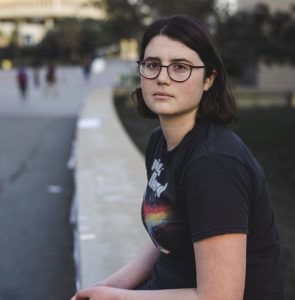
Hello! My name is Maya. I’m a fourth year English major. I plan to pursue a PhD in Literature in order to become a professor, so I can teach literature and other English-related classes in both universities and community colleges. I love to read and learn things from every subject! I also love music, nature, art, making new friends, hanging out with people, and enjoying spicy memes ( ͡° ͜ʖ ͡°) Academically speaking, my main interests are World Literature, Diaspora Literature, Jewish and Middle Eastern Studies, and Shakespeare.
Course Description: What do you think of when you hear the name “Shakespeare”? Do you think of Romeo and Juliet? Are you reminded of dull high school lectures and impossibly dense texts that seemed to be written in a foreign language? Maybe you wish you knew more about him, or maybe you hate him and don’t understand why anyone likes him, or why people think he’s such a big deal. Well, this might be the class that will change your mind!
Instead of analyzing his plays, we will be examining his lesser known, but no less important Sonnets. In this class, we will contextualize his sonnets in the historical period they were written, “translate” his language into modern English, discover the influence he had on literature, culture, and even the English language, and learn why Shakespeare is held in such high regard in the academic world. You might find that Shakespeare is understandable, relatable, and even enjoyable. At the very least, you will not be bored!
Enrollment Information:
Time: W 3:00-4:20pm
Place: DBH 1422
Course Code: 87639
Faculty Mentor: Professor Amy Gerstler
Back to Top
Spoken Word Poetry
Cindy Ung
Major: English with a Specialization for Future Teachers
Biography: 
Hello, hello! I’m Cindy Ung, and welcome to my humble abode called Spoken Word Poetry! I can’t wait to get to know all of you, but first, I will introduce a few things about myself. I love being super involved on campus—right now I’m a Community Assistant at Vista del Campo, a member of Circle K International, a board member of the English Majors’ Association, and a Campus-wide Honors student! I am also running my own poetry blog on Instagram called @moonlightforshort. Whew! Right now I’m a 3rd year majoring in English with a specialization for Future Teachers. I hope by teaching and getting to know my students, we all can leave the classroom with great memories and a newfound appreciation for spoken-word. If anyone wants to chat about poetry, yummy food places, rabbits (I have a 6-year-old Lionhead), or new board games, I’m your girl. Also, you’ll definitely hear me playing a lot of Oh Wonder songs during the beginning of my classes this spring quarter!
Course Description: Rupi Kaur’s “Milk and Honey” and Amanda Lovelace’s “The Princess Saves Herself in This One” are some of the many works of poetry going viral in today’s society. Meanwhile, poetry slams are entering the online world, with Youtube videos receiving over a million views and poetry blogs gaining thousands of followers. But what is the result of these changes? A rising genre of modern poetry called spoken-word! A term for poetry that is written to be performed, spoken-word originated from Harlem Renaissance poetry, Blues, and the Beat Generation of the 1960s. Now, poets travelling across the world are bringing spoken-word to the classroom and even to live events. In this course, students will explore spoken-word with a particular focus on poets from the Project VOICE team, including Sarah Kay, Andrea Gibson, Neil Hilborn, and other established poets. We will analyze the following: How is spoken-word empowering? What storytelling techniques do spoken-word artists employ? What is the relationship between audiences and the poet onstage? Students will also demonstrate their learning by performing their own spoken-word poem by the end of the quarter.
Enrollment Information:
Time: F 12:00-12:50pm
Place: DBH 1420
Course Code: 87635
Faculty Mentor: Dr. Carrie J. Noland
Back to Top
I Think Therefore I Am… Anxious
Nolan Berge
Major: Philosophy
My name is Nolan Zoltan Berge and I am a 5th year philosophy undergrad here at UCI. I have a particular love for the Roman Empire, probably because it was my first chance to regard empire from a critical perspective, allowing me to have a better understanding of our life as American imperial citizens. I am an avid music listener, and enjoy a movie with a well-constructed plot; this sadly limits the movies I can watch because most are a bore with plot holes the size of Captain America using Thor, the god of Thunder’s superpowers. I also enjoy playing sports, but not watching them; and am incredibly fond of dancing when nobody is around.
Course Description: This course will be an in-depth analysis into the existential phenomenon of anguish. It will be predominantly dealing with literary and philosophical descriptions of anguish, with the intent of using these particular conceptions as a springboard into lucrative discussions surrounding art and cultures. If we as a community can learn to recognize instances of anguish, and what these instances express, we may learn to develop a deeper, more broadly applicable sense of empathy for others.
Enrollment Information:
Time: Tu 1:00-1:50pm
Place: DBH 1420
Course Code: 87642
Faculty Mentor: Dr. Nancy McLoughlin
Back to Top
The Evolution of the Romance Novel
Xuan Nguyen
Major: English, History
Hello there! I’m Xuan Nguyen and I am a senior transfer student majoring in English and History here at UCI. I’m also a member of the Campuswide Honors Program anda Peer Writing Tutor with the Writing Center on campus. Ever since I read Pride and Prejudice and watched the 2008 movie adaptation (a classic), I have fallen in love with romance novels. Most ardently. So you can imagine how excited I am to be combining my passion for these books with my background in English and History. When I’m not furiously typing up some new assignment for school or working at the Writing Center, I’m a big fan of reading thriller and fantasy novels, watching British period dramas, water coloring, crafting, jamming out to ABBA songs, hiking through forests, and watching soccer with my dad. I look forward to sharing my passion for romance novels and meeting all of you this spring!
Course Description: Heated stares. Quivering breaths. Heaving bosoms. After years of being overlooked, romance novels today are undergoing the greatest changes since the genre’s beginnings in the late 18th century. This seminar will explore the origins and conventions of the romance novel while also examining how a group of recently released romance novels are making significant changes to the genre. To do this, we will investigate the ways in which the genre has traditionally touched upon subjects like femininity, masculinity, courtship, sexuality, sexual consent, and ideal relationships. Along the way we will be reading The Kiss Quotient (2018) by Helen Hoang, named the Goodreads Best Romance Novel of 2018, as an example of the revolution happening within the romance genre today. By the end of this course you will have a deep understanding of romance novel conventions and a firm grasp of how the novels published today are challenging and redefining these genre conventions to speak to a new generation of readers. No prior knowledge of romance novels or prerequisites are required to take this course. All are welcome to enroll and open your minds (and hearts) to studying this romance revolution!
Enrollment Information:
Time: Tu 10:00-10:50am
Place: DBH 1420
Course Code: 87637
Faculty Mentor: Dr. Virginia Jackson
Back to Top
Normative and Non-Normative Psychology Through Film
Madison Mackenzie
Major: Comparative Literature with Emphasis in Cultural Studies
Hi! My name is Madison MacKenzie and I’m a fourth year Comparative Literature major with an emphasis in Cultural Studies. I could chew your ear off when it comes to movies and television! I’m famous among those who know me for writing three (yes, three!) papers on HBO’s Westworld. I am currently neck deep in my Humanities Honors senior thesis, which is all about androids, psychology, and personhood. It is through this project that I have identified filmic portrayals of mental illness and neurodivergence as a deep and personal interest of mine.
Outside of academics, I play on UCI’s Women’s Ultimate Frisbee club team. I’m a bit of a beach bum, and I’m a bunny mom! My fuzzy son is named Kaz, and he is a very handsome grey and white Netherland dwarf rabbit. I also love choices-matter video games! But more than anything, I love stories—on screen or on paper. I firmly believe that stories are more than mere entertainment. They shape our perspectives, influence culture, and give us a safe space for experimental thought. This spring, I hope we can bring you some thought-provoking stories about the human mind, about cruelty and empathy, about representation, and about film as an impactful artistic medium.
R.M. Corbin
Major: English
My name is R. M Corbin and I’m a fourth year English major. As a member of the Humanities Honors Program, my work explores literary conceptions of loneliness through the lenses of history and ideology. My current project, “In A World of One Color”: Conceptions of Loneliness in Post-WWII U. S. and Japan Literature, uses close reading of prominent post-war literature to explore the shifting cultural landscapes of both the United States and Japan from the mid-20th century– and thus how those changes have affected our world today. In 2019, I received the Howard Babb Memorial Essay award. My work has been published in the San Diego City Works Literary Journal and by Africa World Press. Outside of academia, I enjoy reading books and manga, writing fiction, and playing competitive video games.
Course Description: The boundary between “normal” and “deviant” behavior is largely contextually informed and culturally constructed. By examining exactly how we delimit sanity and normalcy, we will begin to understand sociologist and psychologist Erving Goffman when he argues that “the normal and the stigmatized are not persons but rather perspectives.” In this course, we will apply this critical lens to the 2019 film Joker and the 1988 animated film Akira in order to explore whether the films’ central characters Arthur Fleck and Shima Tetsuo aptly reflect the subjective experience of psychological “non-normativity,” or whether they are better seen as products of our socio-cultural processes of diagnosis and judgment.
Enrollment Information:
Time: Tu 5:00-5:50pm
Place: DBH 1420
Course Code: 87633
Faculty Mentor: Dr. Christopher Fan
Back to Top



